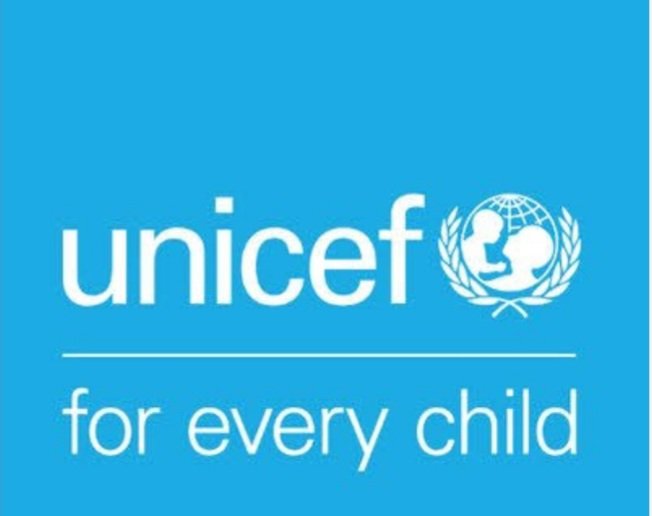Multiple micronutrient supplementation will reduce maternal, child mortality — UNICEF
By Folasade Akpan
United Nations Children’s Fund (UNICEF) says the introduction of Multiple Micronutrient Supplement (MMS) for pregnant women in Nigeria will reduce high rate of maternal and infant mortality.
The fund’s Chief of Nutrition, Nemat Hajeebhoy, said this during an interview with the News Agency of Nigeria (NAN) on Sunday in Abuja.
According to the World Health Organisation (WHO), Nigeria’s Maternal Mortality Ratio (MMR) in 2020 stood at 1,047 deaths per 100,000 live births, making it one of the countries with the highest MMR globally.
NAN reports that the Federal Government, has, however, taken steps to transit from Iron and Folic Acid Supplements (IFAs) to MMS for pregnant women to ensure better birth outcomes.
The Federal Government adopted the use of MMS based on the 2020 WHO recommendation on antenatal care for positive pregnancy experience.
This led to the inclusion of MMS for pregnant women in the “National Guidelines for the Prevention and Control of Micronutrients Deficiencies Control in Nigeria” for improved pregnancy outcomes, compared to IFAs supplementation.
Hajeebhoy said if a mother is healthier, then the chance of death during pregnancy and birth reduces.
According to her, one of the worries of public health and nutrition practitioners is the high rate of maternal, neonatal and infant mortality, a situation which can be reversed through MMS.
She added that with MMS, the proportion of children born small for gestational age reduces and there is reduced risk of pre-term and stillbirth babies.
“Similarly, if a child is born healthy, then the probability that the child will die within the first few days of life or even within the first year is significantly reduced.
“So, if we want to preserve the health of our women and children in Nigeria, especially in those early years and days, then this is what I would call a best buy in public health.
“We also know that if a mother is not nourished, there is the risk of her having a preterm baby or a stillbirth.
“The first 1,000 days from pregnancy to the time the child is two years of age is a very important period in terms of growth as human beings and I don’t just mean physical growth, but also mental growth.
“When a woman is pregnant, she needs to preserve her health so that the child in the uterus can be healthy. So, MMS gives her that boost and all the vitamins and minerals she needs.”
She also said that if a child growing in the uterus does not get enough nutrients, the child is small for the gestational age, which means the child is already malnourished in the womb, but with MMS, such situation is prevented.
The chief of nutrition said there is also a reduction in low birth weight because babies born with low birth weight (less than 2.5 kilogrammes) are at higher risk of infection and even potential death.
She explained that when a woman gets pregnant, her body is supporting two lives and she needs different types of nutrients to develop well, hence the transition from IFAs to MMS.
She further explained that “one of the most important nutrient a woman needs when she’s pregnant is iron, and for the child to develop, she needs folic acid.
“So, over time, the world came up with IFAs and that was the basis for the pill — MMS, for pregnant women for many years to ensure that their health is preserved and their child is healthy.
“IFAs contains iron and folic acid but one MMS pill contains 15 different vitamins and minerals. It contains IFA, but it also contains other vitamins such as B12, many B vitamins and many other good nutrients.
“What we’re realising is that women in general need the multiple nutrients not just the two, but the 15, and we have observed globally that birth outcomes of women given MMS better than those given the IFAs.”
She added that due to these reasons the world was trying to slowly but gradually transit from IFAs to MMS, adding that in many of the high income countries, they have already moved to MMS.
The chief said UNICEF and other partners are working with the Federal Government at all levels to ensure that the supplements are widely available and accepted in the country.
She said that the organisation was working with the government to develop the step by step processes on how to transit appropriately.
Also, Mrs Ladidi Bako-Aiyegbusi, the Director of Nutrition, Ministry of Health and Social Welfare, said that according to the 2018 National Demographic and Health Survey (NDHS), about 61 per cent of pregnant women in Nigeria were anemic which has an impact on the unborn child.
She, however, said that WHO in 2020 recommended that countries should transit from the use of IFAs to MMS to improve pregnancy outcomes.
“Then in Nigeria in 2021, the National Guideline on Micronutrient Deficiency Control was revised, which included MMS for pregnant women through the antenatal care platform.
“So, every woman that goes for antenatal care will be provided with MMS.”
She, however, said that the Federal Government was not phasing out IFAs, as it would still be accessible for pregnant women at health facilities when they go for antenatal care.
“However, we are now doing a gradual transition from IFAs to MMS and we are starting in batches.
“So, we are currently carrying out implementation research in Bauchi State, but government has plans to carry out the implementation research in all the six geopolitical zones.”
Bako-Aiyegbusi said that the data collection tool has just been pre-tested in some communities in the Federal Capital Territory (FCT) and that in March, the ministry in collaboration with one of its partners would be going to some communities in Oyo and also in FCT to interface and get evidence.
The evidence gathering, she said, would be on how ready the pregnant women are to accept the MMS.
She added that collaborations were ongoing on how to carry out the research in other geo-political zones of the country.
She also said that just like the IFAs were distributed free of charge to pregnant women in public healthcare facilities, MMS would also be dispensed free when fully operational.
Bako-Aiyegbusi added that pregnant women would be expected to take the tablet once daily for 180 days in the course of the pregnancy. (NAN) www.nannews.ng
Edited by Hadiza Mohammed-Aliyu
Published By
- Agriculture and Environment Desk Controller/Website Content Manager.








